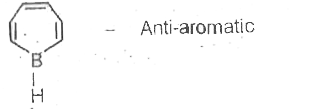Choose the incorrect match
T3 - Promotes erythropoiesis
TCT - Regulates blood calcium level
PTH - Stimulates the process of bone resorption
Epinephrine - Decrease alertness and increase pupillary constriction
To solve the question, we need to analyze each option provided and determine which one contains an incorrect match. Let's break down the options step by step:
1. Option 1: T3 and Erythropoiesis
- T3 (Triiodothyronine) is a thyroid hormone that plays a role in various metabolic processes, including the regulation of metabolism and energy levels. It is known to promote erythropoiesis, which is the production of red blood cells.
- Conclusion: This match is correct.
2. Option 2: Thyrocalcitonin and Calcium Regulation
- Thyrocalcitonin, also known as calcitonin, is a hormone produced by the thyroid gland that helps regulate calcium levels in the blood. It lowers blood calcium levels by inhibiting osteoclast activity in the bones, which reduces the release of calcium into the bloodstream.
- Conclusion: This match is correct.
3. Option 3: PTH and Bone Resorption
- PTH (Parathyroid Hormone) is produced by the parathyroid glands and is responsible for increasing blood calcium levels. It stimulates bone resorption, which is the process where osteoclasts break down bone tissue and release calcium into the bloodstream.
- Conclusion: This match is correct.
4. Option 4: Epinephrine and Alertness/Pupillary Constriction
- Epinephrine (also known as adrenaline) is a hormone and neurotransmitter that is involved in the body's fight-or-flight response. It increases alertness and causes pupillary dilation (not constriction) as part of the body's response to stress.
- Conclusion: This match is incorrect because epinephrine increases alertness and causes pupillary dilation, not constriction.
Final Answer: The incorrect match is the one involving epinephrine, as it increases alertness and causes pupillary dilation, not constriction.
---
- T3 (Triiodothyronine) is a thyroid hormone that plays a role in various metabolic processes, including the regulation of metabolism and energy levels. It is known to promote erythropoiesis, which is the production of red blood cells.
- Conclusion: This match is correct.
- Thyrocalcitonin, also known as calcitonin, is a hormone produced by the thyroid gland that helps regulate calcium levels in the blood. It lowers blood calcium levels by inhibiting osteoclast activity in the bones, which reduces the release of calcium into the bloodstream.
- Conclusion: This match is correct.
- PTH (Parathyroid Hormone) is produced by the parathyroid glands and is responsible for increasing blood calcium levels. It stimulates bone resorption, which is the process where osteoclasts break down bone tissue and release calcium into the bloodstream.
- Conclusion: This match is correct.
- Epinephrine (also known as adrenaline) is a hormone and neurotransmitter that is involved in the body's fight-or-flight response. It increases alertness and causes pupillary dilation (not constriction) as part of the body's response to stress.
- Conclusion: This match is incorrect because epinephrine increases alertness and causes pupillary dilation, not constriction.
Topper's Solved these Questions
Similar Questions
Knowledge Check
Choose the correct match/matches
A18 ml of H2O at 4∘C−NA molecule of H2OB11.2 L of CO2 at - NA2 molecule of CO2273∘C and 1 atmC56 g of Fe57−NA atomD5.6 L of CH4 at STP - 4 g weightThe incorrect match is
A B
B C
C D
D
Choose incorrect match pair form given pairs
Aanthocephalus - inter petiolar stipulesBlathyrus - foliaceous stiplusesCpolygonum - ochraceate stipluesDacacia - tendrillar stipules
Choose incorrect match w.r.t. different classes of fungi
View SolutionChoose the incorrect pair from the matches given below.
View SolutionChoose incorrect match amongst restriction enzymes listed in column l and type of ends produced in column ll
View SolutionIncorrect match is
View SolutionIncorrect match is
View Solution
